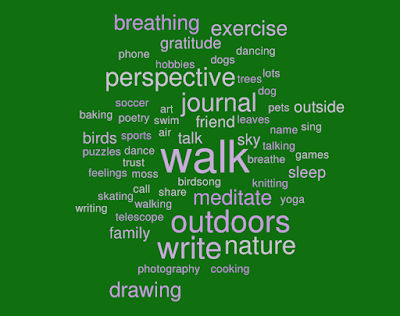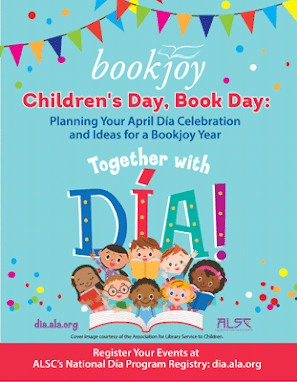You may have seen posts about workshops that Janet (Wong) and I launched last year. After 10 years of collaborating on poetry anthologies, we decided it was an ideal time to share some of what we've learned about creating anthologies with the poetry community and with aspiring poets and anthologists, in particular. So, here's a little "back and forth" from us on what we're doingWhy We’re Teaching the Anthologies Workshops
by Janet Wong and Sylvia Vardell

Janet shares: My UCLA Extension poetry teacher Myra Cohn Livingston sold my first book, Good Luck Gold, for me. Her longtime editor Margaret K. McElderry was in Los Angeles to give the Arbuthnot lecture; after dinner, Myra showed her my manuscript, and Margaret told her that she wanted to buy it. That was 30 years ago. Ever since then, I have tried to honor Myra’s generosity by helping to shine a light on my fellow poets. The Anthologies 101, 201, 301—and soon 401—workshops came about because of all that.
We’ve spent so much time talking about poetry with each other, we thought it was time to share some of those experiences with aspiring poets and poetry lovers. With the ease of Zoom, it seemed like the perfect time to gather people in online workshops to explore the potential of poetry for young people.
Janet: There are so many immensely talented poets writing for children and teens who aren’t being given a chance to share their work. The thinking behind the Anthologies 101 workshop is this: let’s share our experiences and give poets the info they need to get published, either with traditional publishers or by becoming “indie publishers” who showcase the work of other poets and themselves.
In our first workshop, Anthologies 101, we provide an overview of the types of poetry that are being published for young readers with examples of each form or type, we talk about hot topics that deserve consideration for future poetry collections, suggest ways to build knowledge and outreach, consider factors in creating quality anthologies and collections along with the nuts and bolts of indie publishing. It’s a lot to cover in one two-hour session, but it’s a good start for anyone new to the field.
Janet: Right. And for poets who want to explore the indie publishing option more deeply—and also poets who want to have a community of support while they continue working on craft—we have Anthologies 201.

Janet: A book for a charity is one of the best projects to start with, especially if you want to involve students. If you have experience with children (as a visiting author, an educator, or a parent), you might even want to approach a local school and see if they have a budget for a “Publishing Club” project. If so, you could gain experience with putting together an anthology and publishing it, while also having your expenses covered. An extra bonus: the satisfaction of knowing that you’re helping kids experience a real-world writing project that benefits a good cause and has a built-in audience (families at the school and people who support that same cause). Some of the Publishing Club kids can work on marketing the book, designing promotional flyers, writing press releases for the local news, and so on.
Yes: after you publish a book, you need to promote it, to help people discover it. That’s why we created the Anthologies 301 courses.
Janet: Anthologies 301 is made up of three one-hour sessions on Graphics, Videos, and Swag. Poets can take one, two, or all three parts. Having graphics skills is so helpful when it comes to spreading the word about a book—or about yourself as a poet! And you, Sylvia, are a master of creating graphics, videos, and swag.
Thanks, Janet, you know how I love making things that celebrate poetry! Hey, you dropped a hint in the opening of this post about Anthologies 401. Do you want to tell us about it?
 Janet: We’ve been loving these workshops. It’s so satisfying to feel that we’re helping many poets get established—so we thought we’d come up with an additional new course for alumni of Anthologies 101, 201, and 301. It will be very similar to Anthologies 201, but we’ll share even more publishing and writing tips. We’ll produce a book in this course like we did for Anthologies 201, but this time it will be a book for older children. Our Anthologies 401 course will start as self-study videos with a writing period this July, and will culminate in August with a two-hour Zoom and publication of our collaborative book.
Janet: We’ve been loving these workshops. It’s so satisfying to feel that we’re helping many poets get established—so we thought we’d come up with an additional new course for alumni of Anthologies 101, 201, and 301. It will be very similar to Anthologies 201, but we’ll share even more publishing and writing tips. We’ll produce a book in this course like we did for Anthologies 201, but this time it will be a book for older children. Our Anthologies 401 course will start as self-study videos with a writing period this July, and will culminate in August with a two-hour Zoom and publication of our collaborative book.
Here’s the schedule; learn more about it and find updates at https://pomelobooks.com/anthologies-101. Please join us!
Antho 101 * All About Anthologies
A single-session Zoom from noon to 2pm Eastern
Offered on three separate dates (register for one):
Saturday, May 7
Saturday, August 6
Saturday, November 5
* If you want to register for Antho 201, 301, or 401, you must have taken Antho 101 first
Antho 201: Collaborate to Create an Anthology (for ages 0-8)
A four-part course on publishing an anthology (book title: THINGS WE FEEL)
part 1: self-study videos (at your own pace, starting on May 7)
part 2: self-paced writing and feedback: May 7 - June 7
part 3: experience in evaluating and choosing poems: June 15 - July 11
part 4: Zoom from noon to 2pm Eastern: Saturday, July 16
Antho 301 Creating Poetry Graphics, Videos & Swag
Single-session Zoom sessions from noon to 1pm Eastern
Offered on three separate dates (register for one, two, or all three):
Graphics: Saturday, July 23
Videos: Saturday, Aug 20
Swag: Saturday, Sept 24
Antho 401: Collaborate to Create an Anthology (for ages 8 and up)
A four-part course on publishing an anthology (Antho 401 book will be targeted to ages 8 and up, with title TBD)
Part 1: self-study videos (at your own pace, starting July 15)
Part 2: self-paced writing and feedback: July 15 – August 15
Part 3: Experience in evaluating and choosing poems: Aug. 19 – Sept. 15
Part 3: Zoom from noon to 2pm Eastern: Sat., Sept. 17
* If you want to register for 401, you must have taken Antho 101 and Antho 201 first
What else is happening this Poetry Friday? Check out all the poetry goodness over at The Miss Rumphius Effect where Tricia is gathering all our blog posts. See you there!




















































